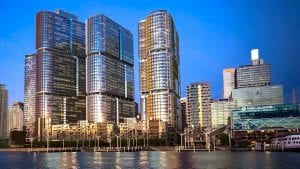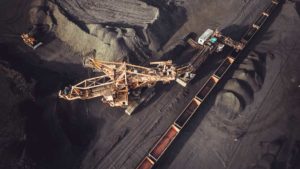Australia has yet to seal its bid to host the UN climate talks in 2026, after rival Turkey doubled down on its efforts and made an updated offer during the interim climate talks in Bonn this week.
The host country for UN Conference of the Party climate talks is usually decided well in advance, but Australia may have to wait until just before the COP30 climate talks in Belem, Brazil, in November before finding out if it has been chosen.
Australia had hoped to secure approval at the meeting of climate diplomats in Bonn over the past 10 days that concluded just after midnight (local time) on Friday. But as the Australian Julia Gardiner, the chair of the Subsidiary Body for Implementation, helped to gavel the end of proceedings, the matter was still unresolved.
Earlier this week, Turkey responded to fears of sky prices at this year’s upcoming conference in Brazil with a promise to deliver lower cost facilities in the seaside city of Antalya next year.
“We are ready to make COP31 accessible, functional and inspiring,” Ayşin Turpancı, an official from Turkey’s directorate of climate change, told the delegates in Bonn, according to AFP.
She noted that Antalya boasts more than 600,000 hotel beds, more than enough to host the delegates from nearly 200 nations. Recent COPs have seen visitor numbers of more than 100,000.
“The prices are able to serve participants from all levels,” Turpancı said.
Australia believes it has majority support, but the host country for the two-week talks must be nominated by consensus, rather than a vote. COP31 will be hosted – by rotation – by the “Western European and Other States” bloc, which includes Australia and Turkey.
Australia is proposing to co-host the talks in Adelaide with neighboring Pacific Island nations – despite a sometimes fractious relationship over its massive fossil fuel development approvals.
An Australian official told AFP in Bonn that Canberra is “working very hard to resolve the COP31 bid”, however delegates say the outcome may now not be known until the Brazil climate conference in November, of just before. The host country usually puts on a bit of a show at a preceding COP, but the deadline will be tight.
Federal energy and climate minister Chris Bowen said last week that Australia believes “it’s way beyond time” that the COP came to the southern hemisphere.
“It’s been recently in Dubai and Sharm el-Sheikh and Baku and, you know, it’s time to come to the Pacific to put the Pacific’s issues on the world’s table, on the world’s agenda, countries whose very existence, it’s an existential matter, is up for debate,” he said in an interview on ABC Radio National.
“It’s a great opportunity for our country and our ambitions to become a renewable energy superpower. It’s the world’s largest trade fair now. It’s also a great opportunity to cement the leadership that Australia has restored to our climate negotiations.
” We were not that long ago a pariah in our international negotiations. Now we have a lot of support to host the COP in Australia. It’s a huge turnaround.
“We have, I don’t mind saying, the majority of the support in our group, which is the constituency which decides it, but there is a process which is meant to work on consensus and agreement between Australia and Turkiye. I’ve spent a lot of time working on that. It’s not resolved yet, but we’ll continue to do so.”
The Bonn talks finished on Thursday with little progress, hamstrung by a two-day squabble over the agenda at the opening plenary.
“In Bonn, we needed to see developed countries step up and put much-needed momentum into international climate talks,” said WWF Global Climate and Energy Policy Lead Fernanda de Carvalho.
“But progress in key areas like the transition away from fossil fuels and ending deforestation did not materialise.”
This year, all countries are expected to submit new national climate plans, but so far only 25 countries have submitted them — and most of these are developing countries.
WWF is calling on countries to step up and deliver 1.5 °C-aligned climate plans over the next few months. “We simply cannot afford to delay this crucial climate action,” said de Carvalho.
Australia is yet to announce its 2035 climate target, and is waiting for advice from the Climate Change Authority. Environmental groups say that the emissions reduction target must be at least 75 per cent below 2005 levels. Australia’s current target is for a 43 per cent reduction by 2030.
Renew Economy has reached out to Bowen’s office for more comment.
If you wish to support independent media, and accurate information, please consider making a one off donation or becoming a regular supporter of Renew Economy. Your support is invaluable.








